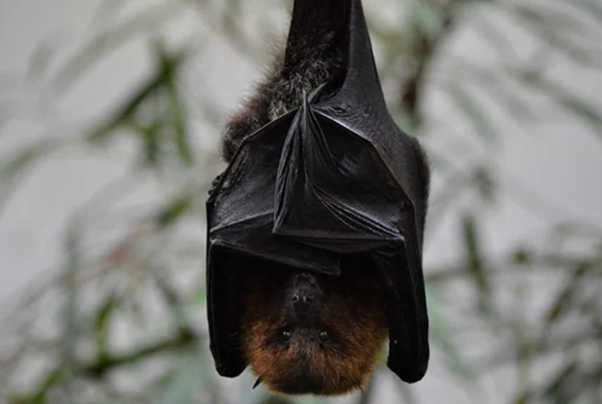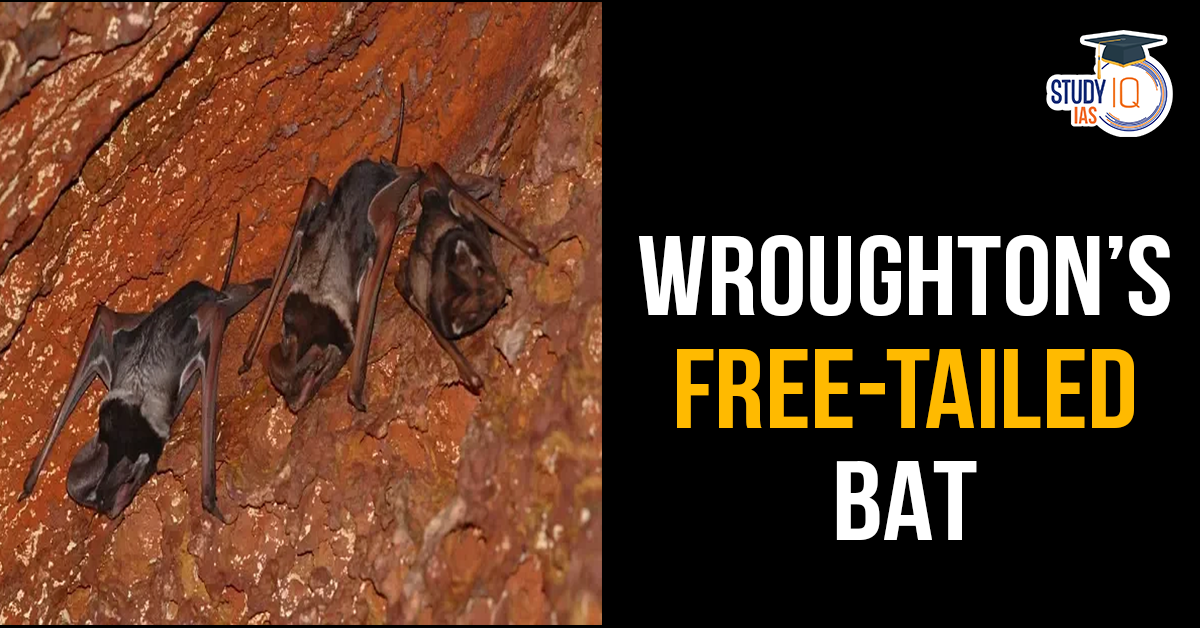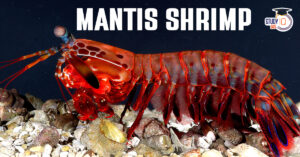About Wroughton’s free-tailed Bat
- It is a highly rare species of molossus bat.
- Features:
- Physical Appearance: Large size, big ears extending beyond the muzzle and bicolored velvety fur.
- It is capable of flying long distances while foraging (Search for food).
- Ecological importance: Assists in pollination.

Distribution
The species has been found/sighted in just three locations globally:
- Single breeding colony in the Western Ghats.
- Small colonies in Meghalaya’s Jaintia Hills.
- A single individual was recorded in Cambodia.
Conservation Status
- IUCN: Data Deficient
- Wildlife (Protection) Act 1972: Schedule I
| Key facts related to Bats |
- Bats are classified into 2 subgroups:
- Megabats (Fruit bats): Larger in size & primarily frugivorous.
- Microbats: Smaller, primarily insectivorous or carnivorous.
- Flight: Bats are the only flying mammals. Their wings are modified forelimbs with a flexible membrane.
- In winter, bats go into hibernation.
- The majority of bats are nocturnal species (awake at night). (All bats are not nocturnal)
- Bats locate their prey (insects) by emitting inaudible high-pitched sounds and listening to the echoes. This is called echolocation.
- Ecological Importance:
- Pollination and Seed Dispersal: Many fruit bats are key pollinators of tropical plants, including bananas, mangoes, and durians. They aid in reforestation by dispersing seeds over long distances.
- Pest Control: Insectivorous bats consume vast numbers of agricultural pests, reducing the need for pesticides. A single bat can eat up to 1,000 insects per hour.
|
| UPSC PYQ |
Q. Consider the following: (2014)
- Bats
- Bears
- Rodents
The phenomenon of hibernation can be observed in which of the above kinds of animals?
(a) 1 and 2 only
(b) 2 only
(c) 1, 2 and 3
(d) Hibernation cannot be observed in any of the above
Answer: C |
Sharing is caring!



 Hydrogen For Net-Zero Economy, Governmen...
Hydrogen For Net-Zero Economy, Governmen...
 Mantis Shrimp - Latest Research News and...
Mantis Shrimp - Latest Research News and...
 Cheetah Project Steering Committee Key R...
Cheetah Project Steering Committee Key R...





















